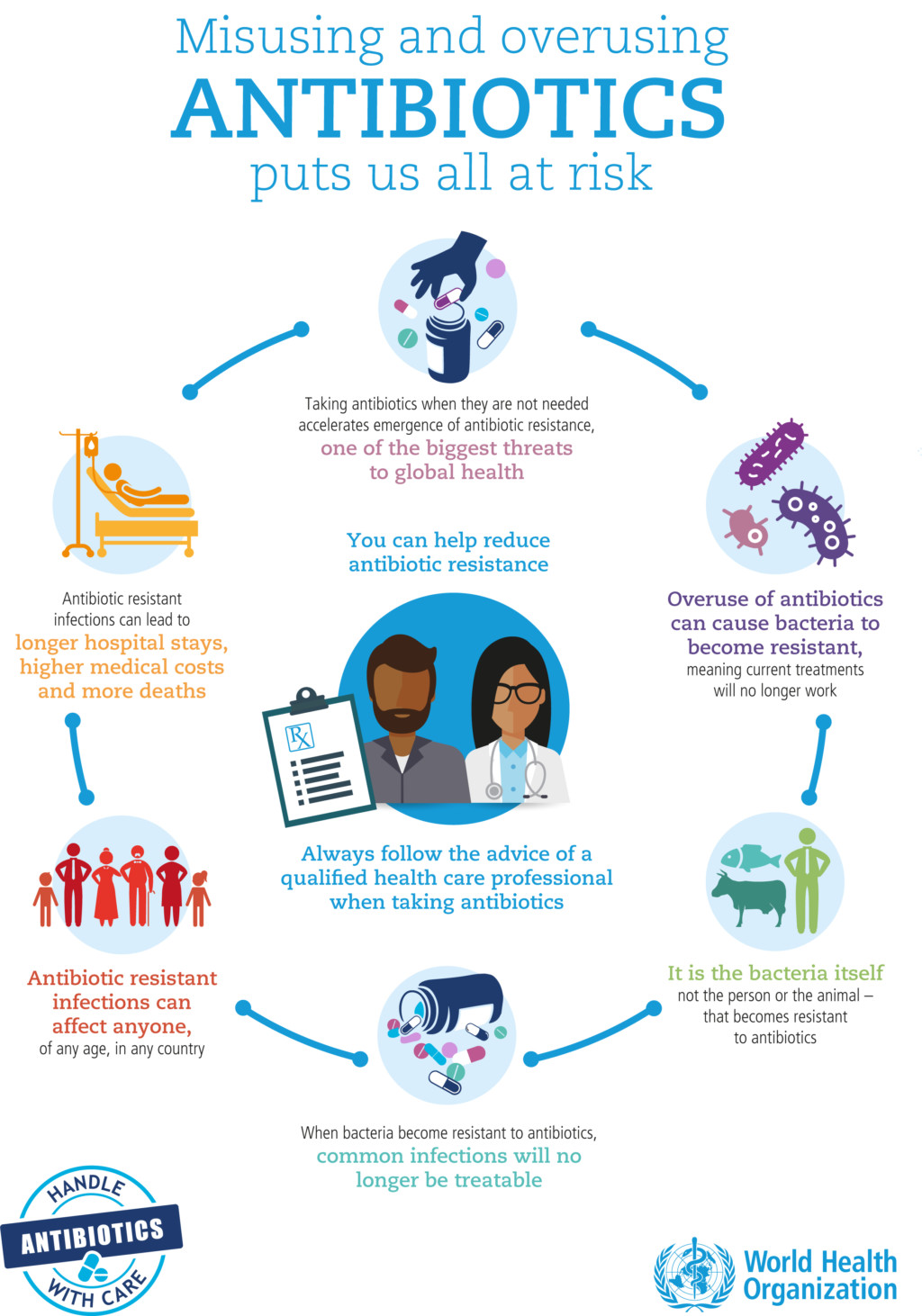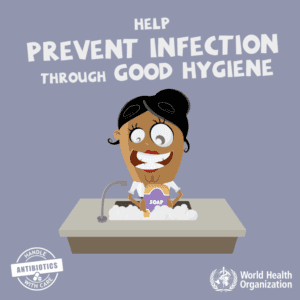
This week, November 12-18, marks World Antibiotic Awareness Week (WAAW). The aim of the week, according to the World Health Organization, is to “increase global awareness of antibiotic resistance (AMR) and to encourage best practices among the general public, health workers and policy makers to avoid the further emergence and spread of antibiotic resistance.”
What does this mean for parents?
As a parent, my biggest concern is the health of my children, which is why I often find myself at the doctor’s office or urgent care clinic. When children are sick, we want a quick fix: the pill that will make them better. Many times that means parents want the antibiotic that will cure whatever ails their kid.
Unfortunately, sometimes that magic pill does not exist.
Antibiotics only kill bacteria. They do not kill viruses, which means that they do not work against colds, sore throats, flu or other infections that are caused by viruses.
Insisting on an antibiotic when you or your child does not need it will only make matters worse.
As parents, it’s our job to manage our expectations regarding healthcare and make it a priority to learn more about what we can do on an individual level to create a healthy living environment for our service member and our families. One of the biggest threats to personal and global health is the emergence of antibiotic resistance.

Taking antibiotics when they are not needed accelerates this problem. Overuse of antibiotics can cause bacteria to become resistant, which means that current treatments will stop working. When the bacteria itself becomes resistant, common infections may no longer be treatable. We need to minimize our reliance on antibiotics and stop seeing them as a cure for the common cold.
A growing number of infections like pneumonia, tuberculosis, gonorrhea and salmonellosis are becoming more difficult to treat because the antibiotics being used are less effective. This resistance can result in longer hospital stays, higher medical costs and increased mortality. Because of this resistance, some doctors are becoming more reluctant to prescribe antibiotics unless necessary.
If your doctor does prescribe antibiotics for you or your family member, it is important to take the item as instructed. He or she will select the best kind of antibiotic based on symptoms and determine the shortest possible length of course needed to completely kill all bacteria.
Be aware that there are hundreds of types of antibiotics available and, while most are safe and effective, some antibiotics do have side-effects. Discuss any possible allergies or recent immunizations with your doctor when obtaining an antibiotic prescription. Never save medicine for future uses or share with others, as antibiotics should be taken for the length of time prescribed. Even if health improves after a couple of days, continue taking the medicine as directed. Doctors have years of medical training to make the best possible health care decisions for their patients; follow their advice.
Evidence is emerging that shorter courses of antibiotics may be just as effective as longer courses for some infections. Shorter treatments make more sense – they are more likely to be completed properly, have fewer side effects and also likely to be cheaper. They also reduce the exposure of bacteria to antibiotics, thereby reducing the speed by which the pathogen develops resistance. If you do want to find out more about a prescription, you can learn about the product and other considerations by visiting TriCare’s Pharmacy information page. You can also learn about antimicrobial resistance from the World Health Organization through interactive, online games.

Ultimately, the best way to prevent resistance to antibiotics is to manage your health effectively. Every infection prevented is an antibiotic treatment avoided.
You can avoid risk of infection by washing your hands properly, preparing food hygienically, limiting close contact with others when sick, and keeping vaccinations up to date. You can reduce the spread of antibiotic resistance by taking/administering antibiotics as prescribed and by not sharing antibiotics with others or between children. You should always follow the advice of a qualified health care professional, so if you have questions about an antibiotic prescription, just ask your provider.
By managing your health expectations and understanding health care on an individual level, you will increase the positive health outcomes locally and globally.











